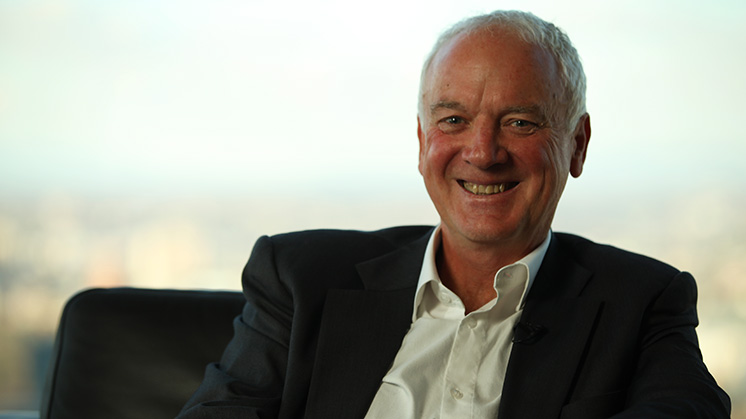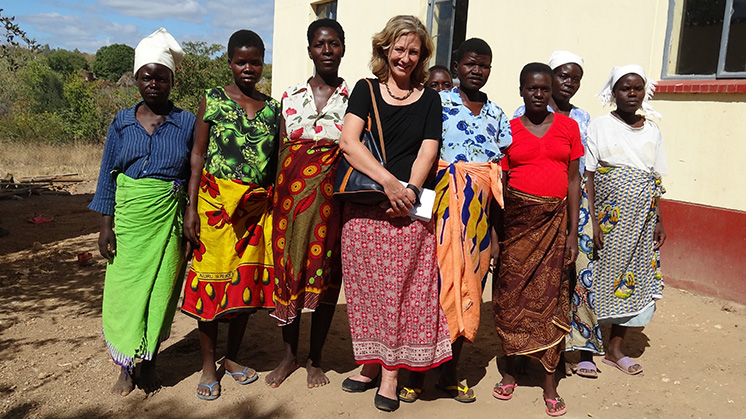
Peter Falvey spent more than 25 years working in the aid and development industry. His experience in program policy and project direction includes AusAID, World Bank and Asian Development Bank funded programs and projects. After a stellar career, Peter decided to give up his day job and pursue philanthropy on his own terms. We asked Peter about his transition, what drives his philanthropy and what advice he has for others considering giving internationally.
Did you have any hesitations about winding back full time work?
I think there is always some hesitation, which is normal. It’s a big decision. But for me, an easy decision, because it gave me the chance to spend more time with my teenage boys and choose the projects I wanted to support.
My advice for others considering philanthropy is to take your time – avoid making a drastic change from full time work to a full stop.
"It took me a few years to establish a new life and routine and I would encourage others to give themselves that thinking time."
What are the similarities between this new career in philanthropy and the one you left?
There aren’t many similarities, despite my background in the aid and development industry. That’s because I have far more freedom now to choose which philanthropic projects I support around the world. This has changed the type of work I’m involved in but also the people I meet – people I wouldn’t have come into contact with in my previous career.
Why is your personal passion international funding?
I have always had a passion for working in international development. I never cease to be amazed by the spirit and good will of the people I have had the privilege to work with. I have met some amazing people over the years – from Prime Ministers to the poorest people. I believe that I can make the biggest difference in poorer countries. Not everywhere, all the time, but sometimes and when things work it is wonderful to see.
“I often feel that I have benefited more than I have been able to give.”
 Mary-Ann Nichols (Burnet Institute – Africa Program Manager) with pregnant women living at a maternity waiting home prior to giving birth. The Burnet Institute is one of the organisations Peter supports.
Mary-Ann Nichols (Burnet Institute – Africa Program Manager) with pregnant women living at a maternity waiting home prior to giving birth. The Burnet Institute is one of the organisations Peter supports.
How did you discover good organisations working in developing nations?
It takes time, but it is very important to be working with the right groups. I have discovered good organisations in developing countries by working in those countries over many years, through multiple visits per year.
“You need to spend time on the ground to get know the people and the organisations.”
Is there an organisation or project you are particularly passionate about?
Unfortunately I get quite passionate about many projects! I think projects which make an impact on health, particularly for women and children, are always satisfying. As are livelihood projects where you can see things changing over time.
I am very passionate about Africa, because I believe the need there is still immense and for a relatively little bit of money you can make a big difference. There is also a rhythm to life in Africa that is not found anywhere else in the world.
People are often unsure of the best way to support projects in developing nations – do you have any tips for individuals or families who may wish to start giving internationally?
My biggest tip for supporting international development is to take your time. Build relationships with people who are familiar with the situation. Seek their advice because what appears to be the problem or solution often isn’t. Be clear on what you are trying to achieve and remember what works well in developing countries doesn’t necessarily work elsewhere.
“Don’t rush in, start small and learn as you go.”
What are the broader benefits for you and your family from philanthropy?
I think it is important for my children to understand not everyone is as fortunate as them. To appreciate there are first world problems which, in the big scheme of things, are neither here nor there. Engaging with the developing world has a significant educational benefit. It offers perspective beyond your life in the first world and allows you to meet interesting people from a range of backgrounds. If you can make a difference in their lives, no matter how small it is, then that’s a wonderful and rewarding outcome.
